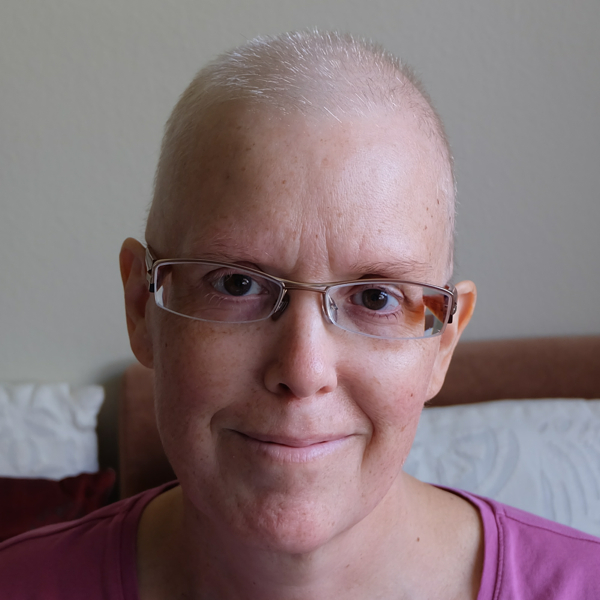People tend to stay with Ericsson for many years, some for their entire careers – which can make it a little weird to be a newbie around here. There’s a lot I still don’t know about this huge, complex, historic company, and I really didn’t know what to expect when … well, let me tell this story in some kind of order.
I started with Ericsson in June, 2014, in a business unit (Cloud & IP) that was only just being formed. I was immediately thrown into the thick of things, and was loving my job: exciting challenges, great colleagues, lots of travel… In fact, I was in Paris at a tech conference in early November when I got my breast cancer diagnosis.
Being told that you have cancer is very, very scary. Wondering whether your job may be at risk because of your illness makes it all the more frightening. I knew that I had great benefits at Ericsson, including very good health insurance. I also knew that the state of California, where I live and work, has a law protecting employees and their jobs in case of catastrophic illness (your own or a family member’s) – but that law applies only after you’ve been in a job for a year, and I had been an employee for less than six months.
If you’ve worked in the US, especially in tech, you have probably heard horror stories about people suddenly losing their jobs (and insurance) as a result of an illness or pregnancy. It shouldn’t happen, but it does. So, no matter how much I trusted and liked my managers and the company, or how much they reassured me, I was anxious. Frankly, there was nothing they could do to alleviate that nervousness except exactly what they did do: behave magnificently.
I had surgery (a lumpectomy) in late November, then went on an already-planned month-long vacation to Australia in December (have I mentioned Ericsson’s generous vacation policy…?). The day I landed in Sydney, I learned that genetic testing on the tumor that had been removed showed that I should have chemotherapy as well as radiation, to reduce the chance that my cancer would recur. This would mean many months of debilitating treatment, and a long recovery time afterwards.
I could have simply taken months off (at reduced pay), but… I didn’t want to. Being stuck at home was bound to give me cabin fever. I knew I’d feel awful from the chemo, but I also knew I’d get very bored. Having work to do, feeling that I was still useful to society and able to contribute, is important to me, the more so when my body and other aspects of my life are horribly out of my control.
So I kept working, from home, while undergoing chemotherapy, taking half days and full days off when I needed them. My colleagues were fantastic about it, going out of their way to keep me in the loop and involved, yet also being understanding on those days when I wasn’t as on top of things as I would have liked.
“That company must really love you,” my oncologist remarked. I later learned that the entire oncology staff were wondering how long I’d hold out! I finally had to stop working in June, just before my final dose of chemotherapy, when I was just too tired to cope even with phone meetings or email. But I only stayed out for five weeks, because, as I’d anticipated, without work to do I became bored and depressed. I had misgivings when I started work again in July – I was still very tired – but being occupied immediately improved my mental health and, again, everyone was very supportive as I eased back into full-time work.
I was nearing the end of 35 days of radiation treatment when I marked my active return to the tech scene by attending the Intel Developer Forum in August (Ericsson was a sponsor). Soon after that I made a trip to Stockholm for a company event. Colleagues from all over the world expressed support and concern. Interestingly, the first thing most asked was: “Is the company treating you well?” Several execs specifically asked me: “Are you feeling ok? Are you sure you want to be back at work already?” They wanted to be sure that I didn’t feel pressured to come back to work. I did feel pressured – but that pressure was coming from me! There are new and exciting challenges before me, and I’m eager to take them on.
I’m still recovering from chemo and radiation, and will still be undergoing treatment (tamoxifen pills, which have their own side effects) for years to come. Meanwhile, I expect to continue pursuing an exciting career at Ericsson – because this company has shown that it cares about me as a human being, even through catastrophic illness.



